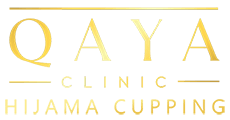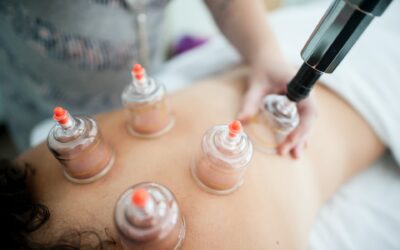Turmeric is a plant that has a very long history of medicinal use, dating back nearly 4000 years. In Southeast Asia, turmeric is used not only as a principal spice but also as a component in religious ceremonies. Because of its brilliant yellow colour, turmeric is also known as “Indian saffron.”
Today, turmeric is widely cultivated in the tropics. It is a product of Curcuma longa, a rhizomatous herbaceous perennial plant belonging to the ginger family Zingiberaceae, which is native to tropical South Asia. As many as 133 species of Curcuma have been identified worldwide. However, Indian turmeric is considered to be the best in the world. India produces nearly all of the world’s turmeric crop and consumes 80% of it.
The rhizome, from which the turmeric is derived, is tuberous, with a rough and segmented skin. The rhizomes mature beneath the foliage in the ground. Before turmeric can be used, the turmeric rhizomes must be processed. Rhizomes are boiled or steamed to remove the raw odour, gelatinize the starch, and produce a more uniformly coloured product. The rhizomes are then boiled in alkaline water for between 40–45 minutes and then dried in the sun immediately to prevent overcooking. The dried rhizomes are polished to remove the rough surface and ground to a yellow powder with a bitter, slightly acrid, yet sweet, taste.
Turmeric has been put to use as a foodstuff, cosmetic, and medicine. It is widely used as a spice in South Asian and Middle Eastern cooking. It lends curry its distinctive yellow colour and flavour. It is used as a colouring agent in cheese, butter, and other foods. Turmeric paste is also applied to the skin of the bride and groom before marriage in some parts of India, Bangladesh, and Pakistan, where it is believed to make the skin glow and keep harmful bacteria away from the body.
In Ayurvedic Medicine, turmeric is thought to have many medicinal properties including strengthening the overall energy of the body, relieving gas, dispelling worms, improving digestion, regulating menstruation, dissolving gallstones, and relieving arthritis. Many South Asian countries use it as an antiseptic for cuts, burns, and bruises, and as an antibacterial agent. In Pakistan, it is used as a remedy for gastrointestinal discomfort associated with irritable bowel syndrome and other digestive disorders. It is also mixed with milk or water and taken to treat intestinal disorders as well as colds and sore throats.
It is well-documented to treat various respiratory conditions (e.g., asthma, bronchial hyperactivity, and allergy), as well as for liver disorders, anorexia, rheumatism, diabetic wounds, runny nose, cough, and sinusitis. In traditional Chinese medicine, it is used to treat diseases associated with abdominal pain.
Health Benefits
Turmeric is arguably the most powerful herb on the planet at fighting and potentially reversing disease. More than 100 components have been isolated from turmeric. The main components of this root is a volatile oil containing turmerone, and colouring agents called curcuminoids. Curcuminoids consist of various forms of the important bioactive compound curcumin. It is the curcumin that produces so many healing properties that currently there are over 10,000 peer-reviewed articles published proving turmeric benefits. Of the 10,000+ studies, the most interesting finding is that when it’s compared to conventional medicine, turmeric benefits equal that of many pharmaceutical medications. In fact, a number of studies have even reported that using curcumin is more advantageous than certain prescription drugs.
Turmeric has an enormous list of conditions that it helps. However, in this blog only a few of them will be mentioned below:
Powerful Anti-Inflammatory
The most powerful aspect of curcumin is its ability to control inflammation. It is so powerful that it matches the effectiveness of some anti-inflammatory drugs. The journal Oncogene published the results of a study that evaluated several anti-inflammatory compounds and found that aspirin and ibuprofen are least effective, while curcumin is among the most effective anti-inflammatory compound in the world. Several other studies have shown the same potency against pharmaceutical drugs, except without the side effects.
Curcumin targets multiple steps in the inflammatory pathway, at a molecular level. It blocks a molecule that travels into the nuclei of cells and turns on genes related to inflammation. This molecule (known as NF-kB) is believed to play a major role in many chronic diseases.
Arthritis is a common disorder characterized by joint inflammation. Many studies show that curcumin can help treat symptoms of arthritis and, again, is in some cases more effective than anti-inflammatory drugs.
An in-depth analysis of all the studies evaluating curcumin’s ability to manage inflammatory bowel disease (IBS, Crohn’s disease, and ulcerative colitis) found that many patients were able to stop taking their prescribed corticosteroids because their condition improved so dramatically by taking curcumin. For many patients with IBD (inflammatory bowel disease) corticosteroids reduced their pain symptoms, but damaged their intestinal lining over time making the condition worse. However, supplementing with curcumin did not have these side effects and actually helped heal the gut and supported the growth of good bacteria (probiotics).
Strong Antioxidant
Curcumin is a potent antioxidant that can neutralise free radicals due to its chemical structure. It can also boost the activity of the body’s own antioxidant enzymes. Curcumin may help delay aging and fight age-related chronic diseases which is why it has become very popular as an anti-aging supplement.
Turmeric is effective at treating various skin conditions which include speeding up wound healing; calming the pores to decrease acne and acne scarring; and controlling psoriasis flares. It can benefit your skin as a home remedy for acne, eczema, psoriasis, dry skin, wrinkles and dark circles under the eyes. It also reduces skin inflammation and slows down cell damage. It can also help reduce pigmentation that evens out skin tone.
Brain Booster
Neurons are capable of forming new connections, but in certain areas of the brain, they can also multiply and increase in number. One of the main drivers of this process is Brain-Derived Neurotrophic Factor (BDNF), which is a type of growth hormone that functions in the brain. Many common brain disorders have been linked to decreased levels of this hormone. Depression is also linked to reduced levels of BDNF and a shrinking hippocampus, a brain area with a role in learning and memory. Curcumin boosts BNDF levels, potentially reversing some of these changes. It may be effective at delaying or even reversing many brain diseases and age-related diseases in brain function. There is also some evidence that curcumin can boost the brain neurotransmitters serotonin and dopamine and the possibility that it could help improve memory and make you smarter.
Curcumin can cross the blood-brain barrier and has been shown to lead to various improvements in the pathological process of Alzheimer’s disease. One key feature of Alzheimer’s disease is a build-up of protein tangles called Amyloid plaques. Studies show that curcumin can help clear these plaques. Whether curcumin can really slow down or even reverse the progression of Alzheimer’s disease needs to be studied properly.
Lowers Risk of Heart Disease
Endothelial dysfunction is a major driver of heart disease and involves an inability of the endothelium to regulate blood pressure, blood clotting and various other factors. Curcumin can improve the function of the endothelium, which is the lining of the blood vessels. Several studies suggest that curcumin leads to improvements in endothelial function. One study shows that it is as effective as exercise, another shows that it works as well as the drug Atorvastatin. Curcumin also reduces inflammation and oxidation, which are also important in heart disease.
Cancer Intervention
Researchers have been studying curcumin as a beneficial herb in cancer treatment. A number of laboratory studies on cancer cells have shown that curcumin does have anticancer effects. It seems to be able to kill cancer cells and prevent more from growing. It has the best effects on breast cancer, bowel cancer, stomach cancer and skin cancer cells where a high dose of curcumin is prescribed. Curcumin in turmeric is not enough to provide a high dose and so a supplemental form of curcumin is used to bring about the desired effect.
Whether high-dose curcumin can help treat cancer in humans has yet to be tested properly. However, there is some evidence that it may help prevent cancer from occurring in the first place, especially cancers of the digestive system (like colorectal cancer).
Also, according to a study published in Planta Medica, taking turmeric in combination with black pepper, which contains piperine, improves turmeric absorbability throughout the entire body. They added 20mg of piperine to 2,000mg turmeric, and it increased the bioavailability of turmeric by 154 percent. You could try swallowing a few whole peppercorns along with your curcumin supplement. Curcumin is also fat soluble, so it may be a good idea to take it with a fatty meal.
Diabetes
A study discovered that curcumin is 400 times more potent than Metformin (a common diabetes drug which improves insulin sensitivity and can help reverse Type 2 Diabetes). In addition to correcting the causes of diabetes, curcumin has also been proven to help reverse many of the issues related to insulin resistance and hyperglycemia. These include diabetic neuropathy and retinopathy, which causes blindness.
Natural Painkiller
One of the more widely accepted properties of curcumin in scientific communities is its ability to manage pain. Recently research has discovered that curcumin naturally activates the opioid system in diabetic rats. Typically manipulated by drugs, this natural process serves as the body’s inherent pain-relieving response. However, not limited to diabetic pain conditions, curcumin can have similar pain-relieving effects on other conditions also, such as severe burns. Typically, burn victims are treated with dangerous opioids and nonsteroidal anti-inflammatory’s. However, curcumin has shown to treat burns in the same way that conventional medicine does.
Alternative to Corticosteroids
Research found that curcumin has the ability to cure chronic inflammation of the eye which would typically be treated with steroids. The researchers stated that although turmeric showed comparable effects, the lack of side effects with curcumin was its greatest advantage compared with corticosteroids. So, if you’re suffering from conditions where steroids are prescribed it might be a good idea to try curcumin as an alternative method of treatment.
Recipes for Health
Turmeric Face Mask
A turmeric face mask is an excellent exfoliating agent and very easy to make right at home with just a few ingredients. However, it is important to note that some people have reported allergic reactions to turmeric after skin exposure. Do a patch test by applying a small amount to your forearm before applying to the face. Be careful not to get it on your clothing as well, since it may stain.
Ingredients:
w ½ teaspoon turmeric powder
w ½ teaspoon organic apple cider vinegar
w 1 tablespoon of organic raw honey
w ½ teaspoon milk or yogurt
w 1 drop lemon essential oil or fresh lemon juice for additional skin brightening [optional]
Directions:
1. Wash face and hands first to remove impurities and any make-up.
2. In a small bowl or jar, mix the turmeric powder with the honey, apple cider vinegar, milk or yogurt and optional lemon oil. Try to get a consistency that will stick to your face. Be careful not to make it too thin as it may drip.
3. Apply the mask carefully avoiding your eyes.
4. Allow the mask to sit on your face for 15–20 minutes then rinse with warm water.
5. If you have any leftover, you can cover and leave in the fridge for your next application.
6. Apply twice a week for best results.
Turmeric Tea
Turmeric tea is a popular beverage throughout Asia and is known by some as “liquid gold.” This golden turmeric tea recipe will help heal your body from a number of inflammatory health conditions.
Ingredients:
w 1 cup coconut milk
w 1 cup water
w 1 tablespoon ghee
w 1 tablespoon honey
w 1 teaspoon turmeric (powder or grated root)
Directions:
1. Pour coconut milk and water into the saucepan and warm for 2 minutes.
2. Add in butter, raw honey and turmeric powder for another 2 minutes.
3. Stir and pour into glasses.
To Sum Up…
It’s hard to deny the powerful effects turmeric has on our bodies. The strong therapeutic effects, which surpass those of conventional medication demonstrates the extent of its potency. From aiding in inflammatory diseases to numbing intense pain, it should be at the forefront of everyone’s medicine cabinet. More human studies is definitely warranted to confirm all these benefits which our ancestors knew and practiced many years ago.
Turmeric as a spice and as a household remedy has been known to be safe for centuries. However, in high dose supplemental form, turmeric may cause nausea, diarrhoea, increased risk of bleeding, increased liver function tests, hyperactive gallbladder contractions, hypotension (lowered blood pressure), uterine contractions in pregnant women and increased menstrual flow. Always consult your doctor if you decide to take high doses of curcumin.
Source
https://www.ncbi.nlm.nih.gov/books/NBK92752/
https://www.healthline.com/nutrition/top-10-evidence-based-health-benefits-of-turmeric
https://draxe.com/turmeric-benefits/
OVER 10K HAPPY CLIENTS ACROSS THE UK INCLUDING BIRMINGHAM, WALSALL, DUDLEY, STOURBRIDGE, OLDBURY, WOLVERHAMPTON, COVENTRY, LEAMINGTON SPA, NOTTINGHAM, SOLIHULL, TELFORD, GLOUCESTER, WORCESTER, DERBY, BRISTOL, STOKE AND SUTTON COLDFIELD INCLUDING THE FOLLOWING AREAS:
Acocks Green, Alum Rock, Aston, Balsall Heath, Birmingham City Centre, Bordesley Green, Bromford, Castle Vale, Digbeth, Edgbaston, Erdington, Garretts Green, Great Barr, Hall Green, Handsworth, Harborne, Hay Mills, Highgate, Hockley, Hodge Hill, Jewellery Quarter, King's Heath, Kings Norton, Kingstanding, Kitts Green, Ladywood, Lozells, Moseley, Nechells, Newtown, Northfield, Nuneaton, Pelham, Perry Barr, Quinton, Saltley, Selly Oak, Selly Park, Shard End, Sheldon, Small Heath, Smethwick, South Yardley, Sparkbrook, Sparkhill, Stechford, Tipton, Tyseley, Ward End, Washwood Heath, Wednesbury, West Bromwich, Winson Green, Witton, Yardley, Yardley Wood
Our therapists are fully insured for all services we provide. Qaya Clinic is based in Edgbaston Medical Village, Birmingham City Centre. WE ARE OUTSIDE THE CLEAN AIR ZONE with free nearby parking.






